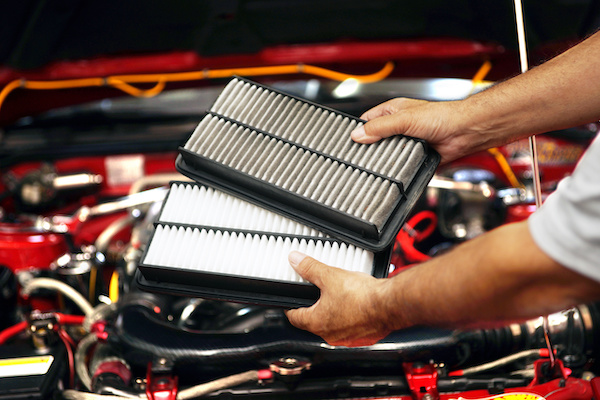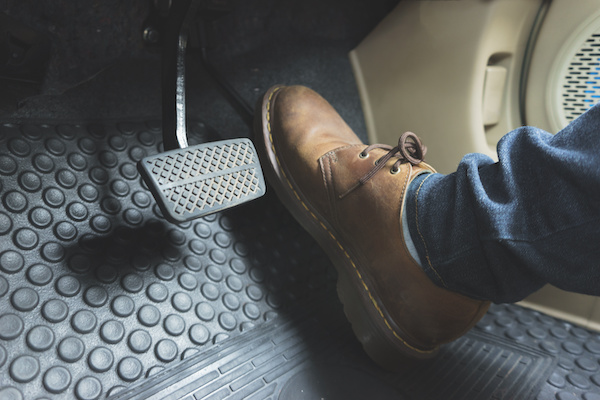Posted on 10/2/2024

The engine air filter plays a crucial role in maintaining your car’s overall performance and efficiency. It traps dirt, dust and debris. It prevents these contaminants from entering the engine and causing damage. Having a clean air filter will help ensure proper airflow, which helps your engine burn fuel efficiently. This will improve performance, prolong engine life and reduce emissions. Signs of Dirty or Damaged Air Filters Here are some of the common signs that you have a damaged or dirty air filter: Reduced Fuel Efficiency One of the most common signs of a dirty air filter is a noticeable drop in gas mileage. When your engine isn’t getting enough air, it compensates by burning more fuel. This ultimately will reduce fuel economy. U ... read more
Posted on 9/25/2024

Maintaining proper tire air pressure is crucial for both your safety as a driver and the longevity of your tires. Properly inflated tires improve fuel efficiency, enhance vehicle handling and reduce the risk of blowouts or uneven tire wear. Here's why checking and maintaining the right air pressure is essential, along with some tips on how to do it effectively. Why Tire Air Pressure Matters Tires that are underinflated or overinflated can cause a variety of issues. Underinflated tires create more surface contact with the road, leading to increased friction. This will wear down the tire tread faster, while also reducing fuel efficiency. On the other hand, overinflated tires have less surface contact with the road. This may make the ride harsher and decrease the tire's ability to safely grip the road, especially in wet conditions. Tips fo ... read more
Posted on 9/11/2024

Wheel bearings are essential components of your vehicle's suspension system. They are responsible for allowing smooth and efficient wheel rotation while you drive and turn. However, like all mechanical parts, they can wear out over time. Recognizing the signs of a damaged wheel bearing early on is crucial to prevent further damage to your wheels, tires and suspension system. A damaged wheel bearing can also prevent a serious safety concern affecting the handling of your car. Here are 3 of the most common signs of wheel bearing damage, according to Fox Run Auto: Humming or Growling Noises One of the most common symptoms of a failing wheel bearing is a strange noise coming from the wheels. This noise often starts as a faint hum or growl and gradually becomes louder as the bearing deteriorates. The sound may increase when you turn the steering wheel, e ... read more
Posted on 8/21/2024
.jpg)
Maintaining your car doesn’t always require a trip to the mechanic. While some tasks should be left to the professionals, there are a few easy maintenance tasks you can handle on your own. These simple steps can help keep your vehicle running smoothly and save you money. 1. Check and Top Off Fluids Your car relies on various fluids to operate effectively, including engine oil, coolant, brake fluid and windshield washer fluid. Regularly checking these levels is crucial. For most fluids, simply open the hood, locate the reservoirs, and top off as needed. Just be sure to consult your owner’s manual for the correct types and levels. If you aren't 100% certain you are using the proper fluid, it is best to consult with your mechanic. 2. Replace Windshield Wipers Worn-out wipers can significantly impair your visibility in adverse weather. Fortunately, replacing them is a ... read more
Posted on 7/24/2024

It’s always nice to save a little money at the gas pump. If you notice that you are losing fuel economy and your car isn’t getting the best gas mileage, it may be a result of a specific automotive problem. Here are ten common automotive issues that can affect gas mileage: 1. Poor Tire Maintenance Under-inflated or worn-out tires create more rolling resistance, forcing the engine to work harder and consume more fuel. Regularly checking and maintaining proper tire pressure can improve gas mileage by up to 3%. Wheel alignment can also affect your vehicle’s fuel economy. 2. Dirty Air Filters Air filters prevent debris from entering the engine. When they get clogged, airflow is restricted, causing the engine to burn more fuel. Replacing dirty air filters can improve fuel efficiency by up to 10%. 3. Fuel Injector Issues Fuel injectors spray fuel ... read more